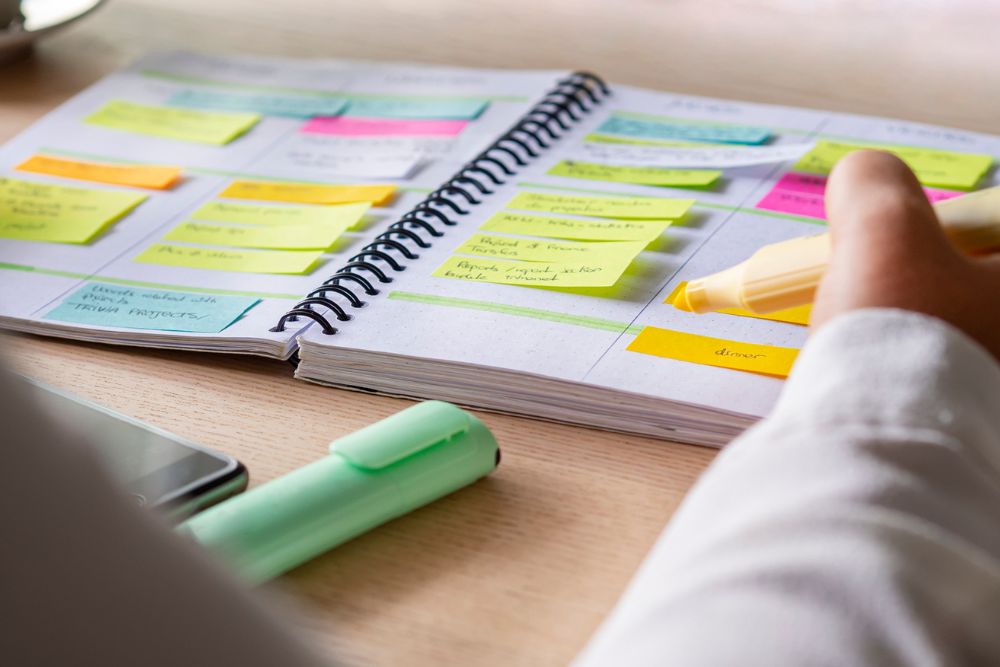A healthy routine is more than a checklist—it’s a series of habits that help you nourish your body, steady your emotions, and live in the present. When you’re fresh out of residential treatment in Cameron, South Carolina, it can feel overwhelming to figure out how to structure your days.
You know you want to stay on track, but how? Well, by making sure you do something each day that typically makes up a part of a healthy routine, like:
- Eating balanced meals at regular times
- Getting consistent, restorative sleep
- Moving your body on most days of the week
- Avoiding or limiting substances that can throw you off track
Waypoint Recovery’s Intensive Outpatient Program (IOP) in North Charleston is here to help. Whether you’re trying to rebuild after a relapse or simply want to reinforce your recovery, our IOP can support you or a loved one in finding a rhythm that feels safe and manageable.
Research shows that keeping a regular schedule—especially with sleep, meals, and movement—can make a big difference in how you feel day-to-day. When your body is cared for, your mind can catch its breath, too. And that’s exactly what your recovery deserves.
Whether you’re an early riser who thrives at sunrise or someone who finds focus after dark, this blog can help you begin building a routine that supports your recovery and strengthens your mental health.
Recovery Routine Ideas for Morning People
If you feel your best in the morning, you might be a morning-dominant person, someone whose energy peaks early in the day and then gradually fades. Leaning into that rhythm can help you build a routine that supports your recovery and fits into your lifestyle realistically.
Start your morning by:
- Waking up at the same time each day (yes, even weekends)
- Drinking water and eating a protein-rich breakfast
- Getting sunlight by stepping outside or opening your blinds
Use your energy wisely:
- Schedule important tasks like therapy appointments, journaling, or recovery group meetings earlier in the day
- Take a brisk walk after breakfast or do a gentle workout mid-morning
- Stick to healthy, energizing meals that include whole grains, lean proteins, fruits, and vegetables
In the evenings:
- Begin your wind-down process early with quiet activities like reading or stretching
- Eat a lighter dinner and avoid heavy, sugary, or salty foods late at night
- Keep your screens off at least an hour before bed to protect your sleep
Recovery Routine Ideas for Night Owls
Maybe mornings feel rough, and your brain clicks on in the afternoon or evening. That’s okay. Being a night-dominant person or night owl doesn’t mean you can’t have a healthy routine. You’ll just want to be more intentional about how you use your evenings.
In the late morning or early afternoon:
- Ease into your day with a walk or light activity to help reset your body clock
- Prepare a healthy brunch that includes fruits, veggies, and protein
- Avoid skipping meals just because you’re not hungry when you wake up
As the day moves on:
- Use your evening energy for things like meal prep, exercise, or creative projects
- Schedule therapy or peer support meetings in the afternoon or early evening
- Make sure you’re still getting enough sleep by setting a firm bedtime
At night:
- Choose calming activities to ease into sleep, like deep breathing, soft music, or low lighting
- Stay hydrated, but avoid caffeine later in the afternoon
- Try to limit screen time before bed
Recovery Routine Ideas for All-Day People (and Everyone In Between)
Maybe you don’t feel tied to mornings or nights—your energy stays steady throughout the day, or it shifts depending on whether it’s a weekday or weekend. You’re what researchers call an all-day pattern person, which may make it tricky to carve out downtime or stick to routines if your energy can go strong all day long.
Here’s how to keep things balanced in the morning:
- Wake up around the same time each day to set a stable base
- Start the day with hydration and a breakfast that fuels you—something with protein, healthy fats, and fiber
- Take 5–10 minutes to set intentions or practice gratitude
Midday:
- Schedule breaks into your day so you don’t go full speed for hours
- Eat lunch away from your work or distractions, and make time to stretch or walk
- If your schedule shifts during weekends, try to keep meals and movement on a similar timeline to avoid burnout
Evening:
- Use this time to reflect, relax, and connect with supportive people
- Cut back screen time before bed and create a wind-down routine you can stick to (not just when you feel exhausted)
- Go to bed at a similar time most nights, even if you stay up slightly later on weekends, keeping the difference small can help protect your sleep cycle
Solidify Your Recovery Routine in South Carolina
If your schedule’s been all over the place lately—or if you’ve slipped up along the way—don’t be too hard on yourself. A healthy routine can always be rebuilt. Whether you’re a morning person, a night owl, or still figuring it out, what matters is that you start. If you need help creating a structure that supports your recovery, Waypoint Recovery’s IOP in North Charleston is ready to help you. Contact us today to explore how we can help.





